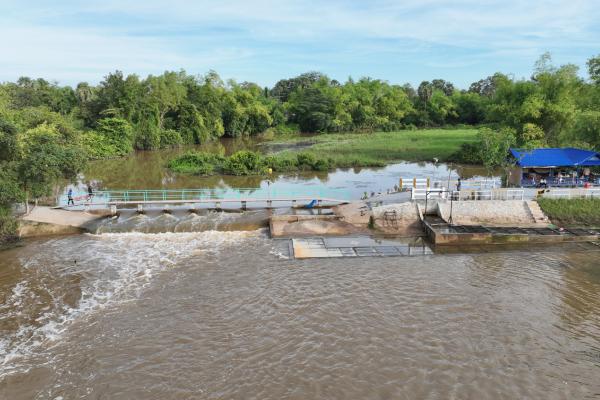Overview
This project aims to synthesize and generate research, facilitating greater adoption of fishway technology in Asian countries through improved capacity and governance structures.
Many fisheries in SE Asia are currently under threat from the growing development of irrigation and hydropower infrastructure. Harvesting fish migrations in South-East (SE) Asia has long been an integral part of most rural community’s livelihood systems. Fish are a main protein source and trade/barter commodity, as well as being a vital source of micronutrients in diets. But the barrier impacts posed by such infrastructure on fish migrations can be significant.
Rice is equally as important as fish production for food security and household incomes and is actively farmed in all SE Asian countries. Most rice production occurs in floodplain systems where there is fertile and productive soil. But floodplains have been extensively developed with flood control and irrigation systems (regulators/low head barriers) to improve rice production and prevent crop inundation during seasonal flooding. Although such flood control and irrigation systems are advantageous for rice growing, they block important migration pathways for fish seeking access to critical nursery and feeding habitats.
This project adds to a program of work that progressed from a proof of concept study (FIS/2006/183) to a more detailed research and implementation phase (FIS/2009/041), which has demonstrated that fishways can mitigate impacts of irrigation development and can also have lasting economic and social benefits for river communities. However, a major learning from these projects was that research, policy, governance and institutional capacity all play key roles in wide-scale application, and will act as an implementation block within countries if they are not adequately considered and incorporated.
Project outcomes
- Understanding the motivations of donors, investors and irrigation agencies for choosing whether or not to include fish passage within development projects.
- Defining institutional capacity needs to enable design and implementation of future fish passage programs and facilitate uplift in fishways capability.
- Filling critical knowledge gaps needed to demonstrate proof of concept to donor agencies.
- Identifying policy needs of the partner countries and donors






